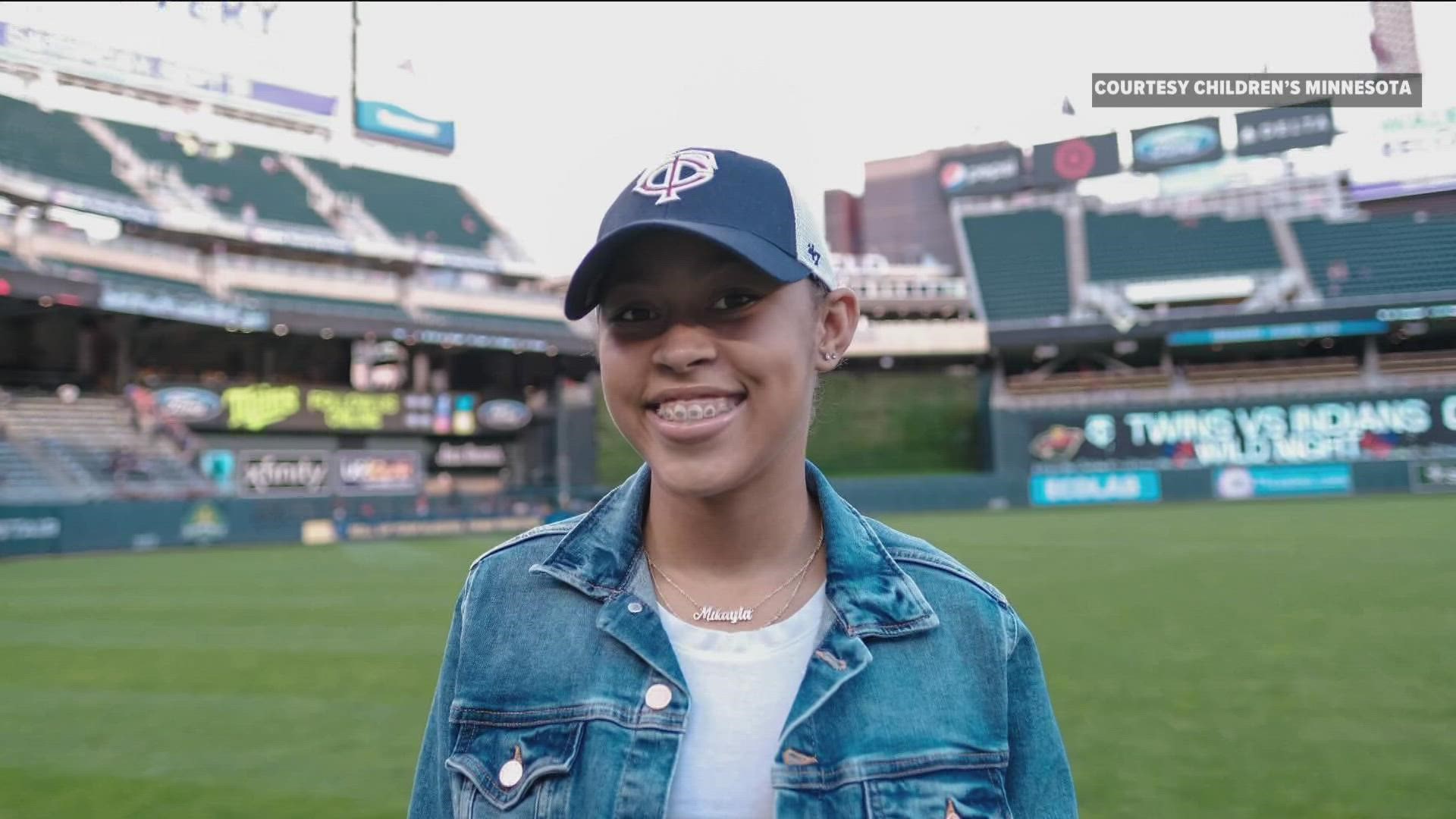MINNEAPOLIS — Blood donation centers like Memorial Blood Center and the Red Cross are making urgent requests and starting new initiatives to recruit more donors of color, specifically Black Minnesotans in recent weeks. The effort is aimed at helping people living with sickle cell anemia.
Now, Children's Minnesota is working to amplify that message, with the help of a young sickle cell patient, 13-year-old Mikayla Draughon.
Like most teens, Mikayla loves taking on the latest TikTok dance; but unlike most of her peers, she's also been starring in several social videos discussing what it's like living with sickle cell.
"Basically, I have to take medicine every day to take the pain away," Mikayla said. "Sometimes the pain is so bad I have to go to the hospital."
Both Mikayla and her mother, Dimitrea Kelly, have lost count of how many times she had to go to the hospital since she was first diagnosed with sickle cell at six months old.
"After her diagnosis, we were in the hospital every month, twice a month, all the time, for everything," Dimitrea said. "She had a stroke when she was two years old and she's had acute chest syndrome, she's had pain all over her body, and it's just been very difficult."
It's even more difficult in the winter. Because Mikayla's cells are sickle shaped, when dropping temperatures cause her blood vessels to contract, it increases the chance of blood clotting and acute pain.
"She has to kind of be inside half the year basically," Dimitrea said. "We focus a lot on quality of life and it's just really difficult for a child that has sickle cell. I felt so bad, I felt so helpless that, as a mother, I didn't have any control to help cure her pain and help her every day."
Mikayla's doctor, Dr. Derrick Goubeaux, says she is eligible for a bone marrow transplant that could cure her of her disease, but she and many others are still waiting for a donor match.
"The donor pool for a bone marrow transplant in the United States is predominantly white," Dr. Goubeaux said. "We know that sickle cell disease in the United States predominantly impacts individuals of color, so there's a large gap there in finding those ideal donors."
"I feel like, if I had the bone marrow transplant, then I would be able to go outside and stay out there in the winter," Mikayla said. "I would be more free."
In the meantime, Mikayla and other sickle cell patients need blood transfusions, which also require donors of color.
It's just one more reason why she is sharing her story with KARE11 and Children's Minnesota.
"I would just ask people to donate," she said.
That call to action isn't only about blood and bone marrow donation. Mikayla is also the face of the Children's Minnesota Bright Campaign, which seeks financial donations to help fund research like gene therapy. Dr. Goubeaux says gene therapy trials are showing promise for sickle cell patients, and might soon offer a treatment that wouldn't require a donor match.

